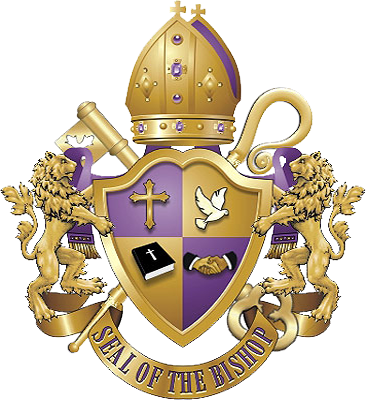The First Bishops of the New Testament
Church: Their Lives and Contributions
Lesson 5.3: The Legacy of Origen
Origen of Alexandria remains one of the most fascinating and controversial figures in
early Christian history. His legacy is both celebrated and debated, reflecting the
complexity of his contributions to Christian thought. In this lesson, we will explore the
enduring impact of Origen’s work, the controversies surrounding his theological ideas,
and how his legacy has shaped the development of the church.
To understand Origen’s legacy, we must first acknowledge the scope of his work. As a
prolific writer and theologian, Origen produced an immense body of literature, including
biblical commentaries, theological treatises, and philosophical works. His approach to
scripture was groundbreaking. He believed that the Bible held multiple layers of meaning
—literal, moral, and spiritual—and he emphasized the importance of uncovering the
deeper, spiritual truths within the text. This method of interpretation, known as
allegorical exegesis, allowed Origen to address complex theological questions and to
reconcile apparent contradictions in scripture. Though this approach was influential, it
also sparked debates, as some critics viewed allegory as a departure from the plain
meaning of the text.
Origen’s theological innovations also contributed to his controversial reputation. He
sought to harmonize Christian doctrine with Greek philosophy, particularly the ideas of
Platonism. For Origen, faith and reason were not mutually exclusive; rather, they
complemented one another. He argued that Christianity could not only withstand
intellectual scrutiny but that it could also provide answers to the deepest philosophical
questions of his time. One of Origen’s most ambitious works, *On First Principles*, is
considered the first systematic theology in Christian history. In it, he explored topics
such as the nature of God, the preexistence of souls, and the ultimate reconciliation of
all creation with God. These ideas, particularly the notion of universal salvation, were
met with resistance by some within the church.
The controversies surrounding Origen’s theology intensified after his death. While many
admired his intellectual rigor and spiritual insight, others viewed some of his teachings
as speculative or even heretical. For example, his concept of apokatastasis—the idea
that all beings, including the devil, would eventually be reconciled with God—was
heavily criticized and later condemned by the church. Additionally, his views on the
Trinity, which some perceived as subordinating the Son and the Holy Spirit to the
Father, were deemed problematic as Trinitarian doctrine developed in the centuries
following his life. These theological disputes culminated in the fifth century when certain
interpretations of his teachings were officially condemned at the Second Council of
Constantinople.
Despite these controversies, Origen’s influence on Christian thought is undeniable. His
work laid the foundation for many theological and exegetical traditions in the church. His
allegorical method of interpreting scripture profoundly shaped the way early Christian
scholars approached the Bible. Figures such as Gregory of Nyssa, Athanasius, and
Jerome drew upon Origen’s insights, even as they distanced themselves from some of
his more contentious ideas. His emphasis on the spiritual meaning of scripture
continues to inspire Christian thinkers and exegetes to this day.
Origen’s legacy also extends to his role as a bridge between Christianity and the
intellectual traditions of his time. His ability to engage with Greek philosophy
demonstrated that Christian thought could hold its own in the broader intellectual
landscape of the ancient world. This integration of faith and reason would later
influence key Christian theologians, including Augustine and Thomas Aquinas. Origen’s
willingness to wrestle with difficult questions and to push the boundaries of theological
exploration set a precedent for future generations of Christian scholars.
Yet, Origen’s legacy is not without its challenges. His condemnation by later church
councils raises important questions about the boundaries of theological inquiry and the
balance between innovation and orthodoxy. His life and work remind us of the tension
that often exists between exploring new ideas and maintaining continuity with
established doctrine. While some of his teachings were ultimately rejected, his
contributions to the intellectual and spiritual life of the church cannot be dismissed.
In conclusion, Origen’s legacy is both complex and enduring. He was a pioneer in
biblical interpretation, a bold theologian, and a thinker who sought to harmonize faith
and reason. His work has left an indelible mark on Christian thought, influencing
generations of theologians, scholars, and believers. At the same time, the controversies
surrounding his ideas highlight the challenges of theological innovation within a faith
tradition. Origen’s life and contributions remind us that the pursuit of truth often involves
navigating difficult questions and embracing the tension between tradition and
exploration. His legacy, though contested, continues to inspire and challenge those who
seek to deepen their understanding of the Christian faith

Comments are closed.